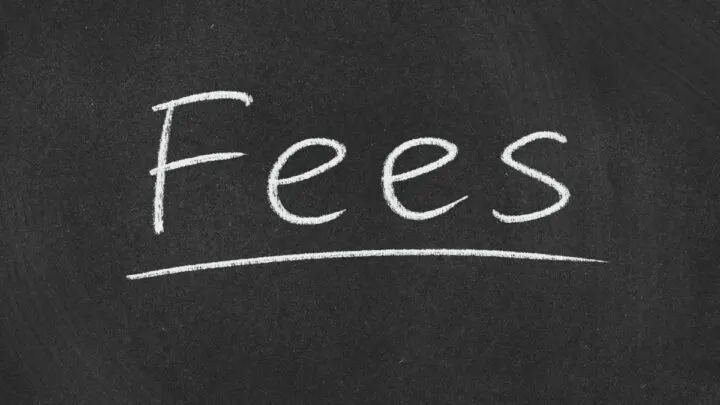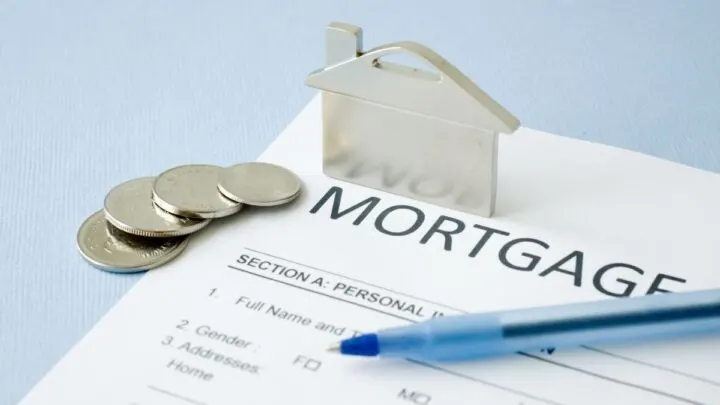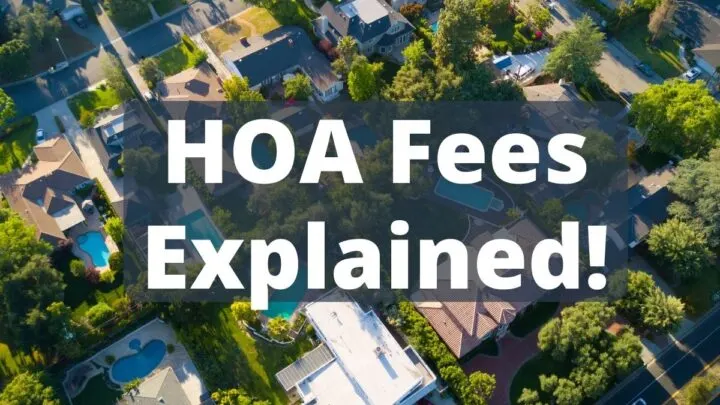In the market for a new house? Chances are good that your next home will be part of a homeowners’ association or HOA. And where there are HOAs, there are HOA fees.
There are over 370,000 active HOAs in the U.S., according to the Foundation for Community Association Research. The function of these organizations—and the fees they charge—are anything but transparent.
In this article, I’ll be breaking down the basics of HOA fees: their purpose and structure, how much you might have to pay per term, and whether it’s worth it.
What Are HOA Fees?
HOA fees are expenses levied to homeowners who buy properties in communities managed by homeowners’ associations.
To understand why these fees are necessary, it’s important first to understand what homeowners’ associations are and how they operate.
What Is an HOA?
Homeowners’ associations are essentially small governing bodies that issue guidelines, make decisions, and arbitrate disputes relating to the properties and miscellaneous goings-on within a community. Most planned communities, subdivisions, and condominiums have homeowners’ associations.
In some cases, the developer or property manager might form an HOA to help oversee day-to-day affairs and resolve issues. Other times, the members of a community might take it upon themselves to establish an HOA for the purpose of having more say about the sorts of things that go on in their neighborhood.
The leadership of an HOA consists of officers with titled positions, which can vary depending on the exact structure of the organization. These positions commonly include President, Vice President, Treasurer, Secretary, and Member-at-Large (a.k.a. everybody else).
In a truly democratic fashion, HOA officers are typically elected by majority vote.
These individuals come together periodically to discuss important community matters, and non-office-holding residents are encouraged to join and take part in these meetings whenever possible.

HOA Fees Explained
It’s one thing for an HOA to set an agenda, but they require money to actually put it into action. That’s where the fees come in.
HOA member dues are used to tend to the practical needs of the community and its properties and surrounding grounds.
These needs might include:
- Maintenance and repairs
- Upkeep of facilities like gyms, pools, tennis courts, and clubhouses
- Mowing, landscaping, and beautification of natural areas
- Planning events—Easter egg hunts, summer cookouts, Christmas toy drives, etc.
- Paying for other amenities, such as communal lounges and on-site security
- Covering insurance costs
Some HOAs ask for the input of their members when drafting budgets and designating spending. That way, there’s a consensus about how best to use the money that everyone contributes.
It also gives members an opportunity to voice their opinions about ways the community can grow and evolve.
Let’s say, for instance, that you want to build a dog park on a part of your community’s property that’s not currently in use.
You might propose the idea at your next HOA meeting, at which time you and your neighbors would vote to determine whether it would be a worthwhile use of community funds. If a majority of members agree that it would, you’d begin the process of deliberating about how much money to put toward the project.
Seen from this perspective, homeowners’ associations can be engines of collaboration and communal improvement rather than residential extortion rackets like many people think.
How Much Are HOA Fees?
Like home prices themselves, HOA fees can range widely. Ordinarily, though, they reflect the general cost of living within a given community or geographical location.
Because there’s so much diversity in terms of the size, structure, and operation of different HOAs, it’s tough to provide an accurate representative average. That said, the mean cost of HOA fees in most parts of the country is around $200-300 per month.
To reiterate, it mostly comes down to where you live, what kind of value the properties in your area hold, and how new or exclusive your community is.
The HOA fees for a quiet old neighbor in the suburbs of a moderate-sized city might only be $400 for the entire year, while they may climb as high as $500-700 per month in posh, high-dollar developments.
Term lengths, too, differ from one community to the next.
Monthly member dues are most common, but there are HOAs that collect fees quarterly (every three months) or annually. Needless to say, those that request payment on a monthly basis will usually charge significantly less than those that opt to spread things out a bit more.
If a couple of hundred dollars a month sounds like a lot of money, keep in mind that amassing a pool of communal funds to draw on could prevent you from having to pay for unavoidable repairs, unforeseen emergencies, or unignorable regulation-related expenses on your own.

Are HOA Fees Included in Your Mortgage?
The short answer is no. HOA fees are a separate out-of-pocket expense that you as the prospective homeowner must pay a certain number of times per year in addition to your house payment or condo loan.
The HOA’s board of directors is usually responsible for tallying up the fees that each member is expected to pay.
The decided-upon amount may be partially influenced by the current market value or average mortgage rate of the homes in the community, but it could also be based purely on the budget the board of directors has drawn up for the term.
You’ll find all the relevant details about your HOA and its policies in your home buyer’s agreement. I strongly recommend reviewing this information before you pull the trigger on your home purchase. That way, you won’t be blindsided with irritating surprise costs later on once you get settled in.
Are HOA Fees Negotiable?
Again, the answer is no.
Once an HOA’s board of directors has determined how much its members should pay, their decision is final—and they have the legal authority to enforce it.
It’s not all bad, though. Ultimately, your HOA fees are going to a good cause, which is the preservation and enrichment of the place you call your home.
Think of it as a kind of “pay to play” system that gives you access to all sorts of perks, from a financial safety net to convenient facilities, fun events, and special programs. Even if you don’t plan on using any of the amenities your HOA fees get you, the option is always there!
Still, not are homeowners are reluctant to pay their homeowners’ association fees on principle. For some, it’s a matter of conserving resources.
Sadly, this is one area where there’s not a lot of wiggle room.
The only way you might be able to finagle a de facto discount on your fees is to ask the person you’re buying your home from to ante up your first few terms worth of payments for you. Just don’t get your hopes up—this sort of gamble is unlikely to be successful outside of a one-sided buyer’s market.
What Happens if You Don’t Pay Your HOA Fees?
This is a provocative and surprisingly common question among homeowners who don’t like the idea of being beholden to an HOA—do I really have to pay my HOA fees? What will the consequences be if I don’t?
Take my word for it: it’s best not to have to find out.
As mentioned, HOAs are legally sanctioned organizations. They, therefore, have the law on their side when it comes to extracting dues from stubborn members.
You might be able to get away with not forking over your fees for a term or two, but if your account remains delinquent for too long, the organization’s officers have the right to impose hefty late fees or even send your tab to collections.
That’s not a situation you want to find yourself in for more than one reason, not the least of which being that it might earn the ire of HOA higher-ups, who have the power to make your life very difficult.
Fortunately, HOA fees tend to be pretty reasonable, so you shouldn’t have any trouble coming up with the money and remaining in the good graces of the other members of your community.
Can HOA Fees Go Up?
HOA fees are almost never fixed. They may go up (or down, though this is definitely a rarer occurrence) every so often based on the needs of the community and the budget your HOA’s board of directors has devised to meet them.
It’s not uncommon for HOA fees to increase incrementally from one year to the next as residential areas expand and take on new properties, projects, and obligations.
There may also be circumstances in which the amount you pay each term jumps up temporarily. An example is if a water line in your subdivision were to burst and your HOA felt it prudent to recoup the cost of repairs plus a little extra to provide a cushion for possible future fixes.
In any case, it’s unlikely that your dues will get any cheaper as time goes on. Your best option is to make peace with that fact and try to remember all of the positive things that HOA fees accomplish.


